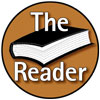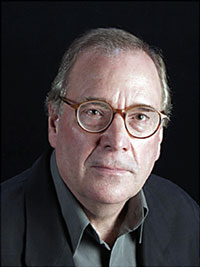by Vicky Dickson

To someone who’s never tried to write for a living, the life of a novelist might seem idyllic. You get to pick your own hours, without anyone looking over your shoulder; you get to write whatever pops into your head. You can live wherever you want, in a 100-year-old house, for instance, that’s surrounded by apple trees and a stream. Shared with a wife and a child, that life can even be magical.

But as Hillsborough novelist Craig Nova is quick to point out, that life, like every life, also comes with a price. It’s the price of never really being able to tell where you stand. Like Nova’s The Good Son, the novel you write could be so amazing as to garner a review in the New York Times by John Irving describing it as “the richest and most expert novel in my recent reading by any writer now under 40†– and you’d still have to write the next one. Which would take you 700 days, though the money from the publisher’s advance would only last for 500.
Even if, like Nova, you’re good enough to be published by magazines like Esquire, The Paris Review, the New York Times Magazine and Men’s Journal, you still have to take time off from one of your 12 novels to write those pieces. And screenplays too, because the money’s good – though you might well find yourself producing draft after draft for a movie that never gets made.
Then there are the agonies of the writing process itself, in which, as Nova says, “you’re wrong so much of the time … sometimes you get there and it’s just a desert.†There’s the effort of producing maybe 70,000 pages of manuscript and knowing that most of it will never be read by anyone but you. And the day-to-day grind of sitting down to redo the previous day’s seven or eight pages of writing before you even get to the next seven or eight you need to produce.
Nova’s not so dependent on the proceeds of novel writing for his living these days, having been appointed the Class of 1949 Distinguished Professor in the Humanities at UNC-Greensboro in 2005. It’s a job he relishes, because he gets to see his students “drunk on words.†He’s able to spend time with the Class of ’49 (who were inspired by their undergraduate classes with poet and novelist Randall Jarrell to raise the money for the fellowship) and “catch a whiff from them about how much things have changed†over their lifetimes. He shares with those women his recipe for “the world’s best†chocolate soufflé.
Though Nova could certainly rest on his laurels – having both a Guggenheim Fellowship and an Award in Literature from the American Academy and Institute of Arts and Letters under his belt – he shows no signs of slowing down. He can’t even leave what he’s already written alone: Brook Trout and the Writing Life, Nova’s 1999 autobiography, has just been re-released so that he could include some things he left out of the book’s first edition and address some things he’s learned in the intervening years.
Nova has a gift for language that is both precise and powerful. He has a rare ability to connect with a reader’s half-formed thoughts and perceptions, putting them on paper in a way that unearths profound truth.
Like this: “When I am with a friend, I am a little different than I am with other people, and I only get to be this way when I am with this particular friend. … These people let you be more the way you want to be, just by being with them. The hard lesson … is that when one of these friends dies he takes some of you with him, if only because you discover, with a sort of amazement, that the person you got to be when you were with the friend who died is gone.â€
He describes the ordinary in a way that fascinates, that inspires a reader to pay more attention: “Blue damselflies were in the air, like needles of turquoise, their wings nothing more than filaments, and around them there were orange butterflies. Beyond them raspberries hung ruby-like in the shade. I saw blueberries, too, the end of each having a small shape like a crown. The accumulation of insects, the quick paths they described in the air (like the random path of memory or desire), made me confront what I was looking for, and why I came to the places where brook trout exist.â€
In other words, Craig Nova is the sort of writer who acts as a guide to the meaning and beauty in human experience. Out of the trials and tribulations of a life dedicated to writing, he’s forged a body of work that will endure.
Lit Notes
Another North Carolina literary stalwart, Clyde Edgerton, is coming to town July 30 to read from his new book, The Night Train, at McIntyre’s on July 30 at 11 a.m. and Flyleaf at 6 p.m. Edgerton’s events are as enthralling as his books; you won’t want to miss this one.
Thriller lovers should check out N.C.-native John Hart’s upcoming readings at Flyleaf on July 16 and McIntyre’s on July 17, both at 2 p.m. The New York Times bestselling author will read from his latest, Iron Horse, which sounds like the perfect summertime read.
Coming up next in Flyleaf’s Lunch with the Author series is Jimmy Creech’s discussion of Adam’s Gift, the former Methodist minister’s memoir of his struggles with his church over its treatment of homosexuality. The July 8 event starts at noon and is free; bring your own lunch or call Foster’s Market to buy a boxed lunch.